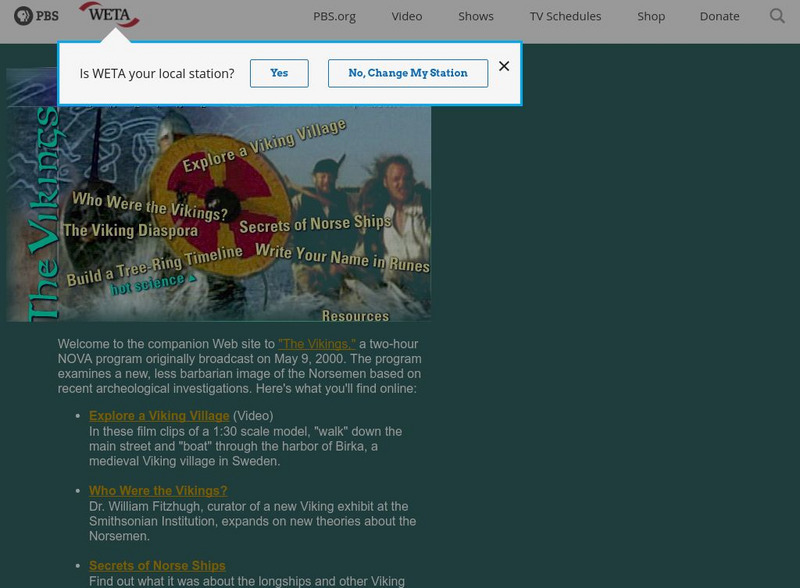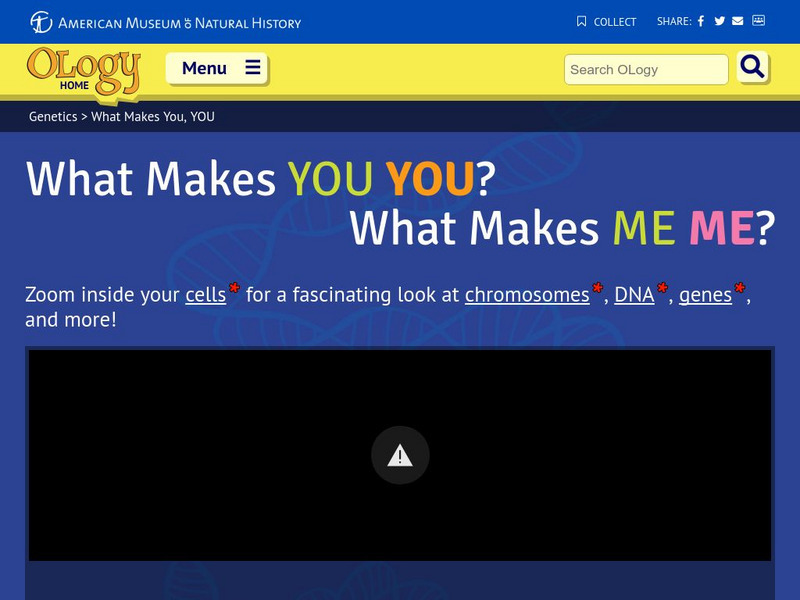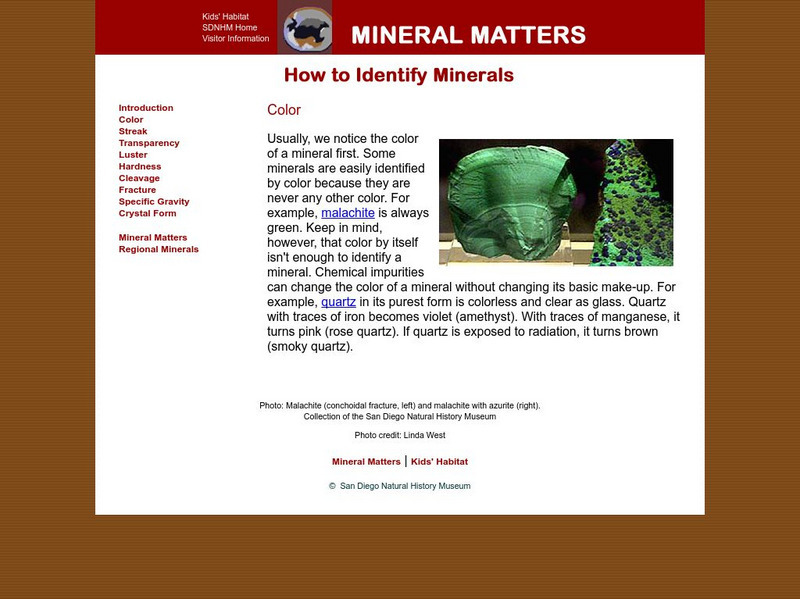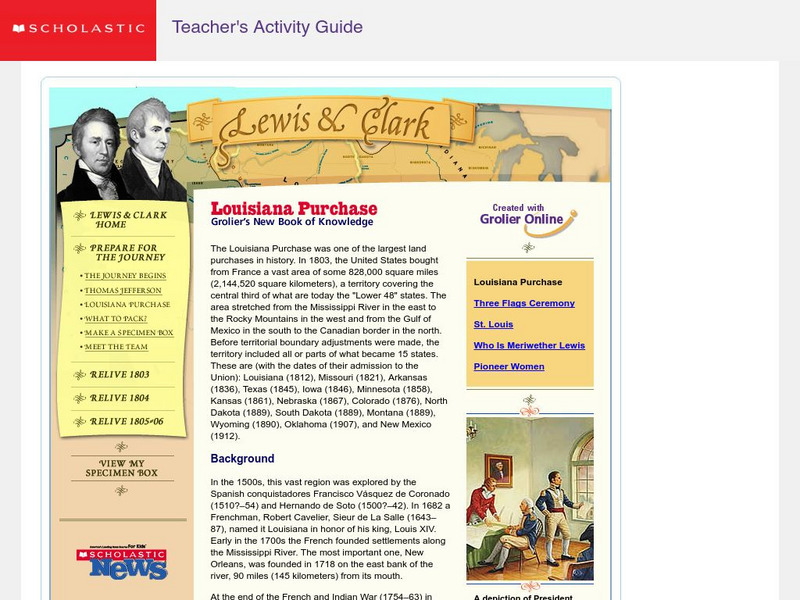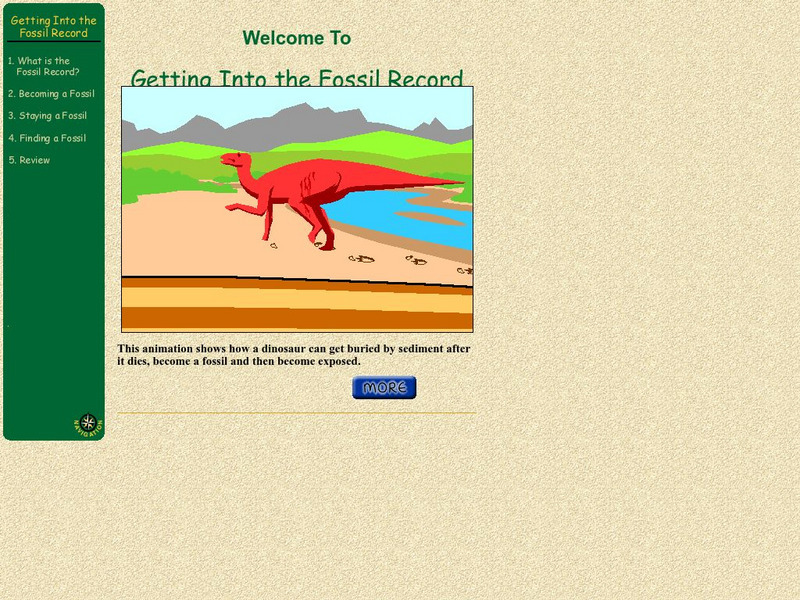Hi, what do you want to do?
American Museum of Natural History
American Museum of Natural History: O Logy: Dive Into Worlds Within the Sea
Learn about three different marine ecosystems: coral reefs, the continental shelf, and the deep sea. Interactive game included, which will help players chart the interrelationships among organisms that live in each ecosystem.
American Museum of Natural History
American Museum of Natural History: Ology: See the Light
Reflection, refraction, and the colors that make up white light is explored through lab activities after reading a brief background about light energy.
University of California
Ucmp: Life Has a History
This is a very good introduction to the role evolution plays in the development of biodiversity. These topics and extinction are explained with the use of colorful interactive pictures.
Ducksters
Ducksters: Ohio State History for Kids
Investigate the history and timeline of the state of Ohio including early explorers, Native Americans, French and Indian War, Northwest Territory, and the Civil War.
State of Florida
Florida Historical Resources: Florida History: Exploration and Colonization
In the mid-1700s, the control of Florida moved back and forth between the Spanish and English. Learn about the historic events which contributed to this through this resource.
University of Groningen
American History: Essays: French and Indian War's Impact
This elementary-friendly site from the Department of Humanities Computing at the University of Groningen provides information on the French and Indian War. The print is large and the vocabulary is manageable. Contains some awkward...
American Museum of Natural History
American Museum of Natural History: Ology: Astronomy: In Pictures: Beyond Planet Earth
What would it be like to travel across the solar system and explore space? Take a look at some of the places that humans might go to someday, and the questions that scientists are asking.
American Museum of Natural History
American Museum of Natural History: Nature Versus Nurture O Logy Card
Flip this interactive OLogy card to find questions and answers, fast facts, and other bite-size pieces of information to help you understand the nature-versus-nurture debate.
University of Oxford (UK)
Oxford University Museum of Natural History: The Learning Zone: Fossils
This excellent website walks students through the basics of understanding fossils. It emphasizes that most common fossils would be invertebrates and, after learning more about these life forms, students can choose to take a quiz. The...
American Museum of Natural History
American Museum of Natural History: O Logy: Fighting Dinos: New Discoveries
A virtual investigation surmising how two fighting dinosaurs died in the Gobi Desert.
American Museum of Natural History
American Museum of Natural History: A Nature and Nurture Walk in Mendel Park
Take a walk in the animated "Mendel Park" to discover which traits are genetic and which are a combination of genetics and upbringing.
University of California
University of California Museum of Paleontology: Stories From the Fossil Record
This colorful, interactive site demonstrates how fossils can be used to discover a range of information about the past. Topics include Past Lives, Paleoecology, Geologic History, and Biodiversity.
Ducksters
Ducksters: History: Ancient Greece for Kids
Kids learn about the civilization of Ancient Greece on this site. The birth of democracy, philosophy, and science as well as Athens and Sparta.
Ducksters
Ducksters: History: Ancient Rome for Kids
On this website, students will learn about the civilization of Ancient Rome. Understand the Roman Republic, Empire, how they lived, their gods, and war.
Ducksters
Ducksters: History: Louisiana Purchase for Kids
Kids learn about the Louisiana Purchase which is when President Thomas Jefferson bought land west of the Mississippi from the French.
Smithsonian Institution
Smithsonian: Engaging Students With Primary Sources
This reference guide is designed to highlight the benefits of using primary source materials in any classroom and to provide the teacher with practical suggestions and examples of how to do this. It includes a bibliography and links to...
PBS
Pbs Nova: The Vikings
This site, a companion to the NOVA program on PBS, examines the Vikings and whether or not their reputation as "barbarians" is founded. Content includes a look at a Viking Village, the Norse people, Viking ships, the Viking alphabet, and...
NASA
Nasa: Climate Kids: The Story of Fossil Fuels, Part 1: Coal
Discover the history of fossil fuels in chronological order, beginning in China and moving on to Bertha Benz and the creation of the first automobile. Learn about the rise in need for petroleum, and the pros and cons of fossil fuel...
New York Times
New York Times: 32 Innovations That Will Change Your Tomorrow
If you don't know that the incandescent light was a failure before it was a success, it's easy to write off some modern energy innovations like solar panels because they haven't hit the big time fast enough. Worse, the fairy-tale view of...
American Museum of Natural History
American Museum of Natural History: O Logy: What Makes You You? What Makes Me Me?
Simple animation explains the function of chromosomes, genes, and DNA by letting you zoom into a cell nucleus for a closer look.
San Diego Natural History Museum
San Diego Natural History Museum: Mineral Matters: Color
Don't be fooled! While color is one way to identify a mineral, it can often be misleading. Quartz is one example of a mineral that can change colors depending on its chemical make-up.
Independence Hall Association
U.s. History: The Trail of Tears: The Indian Removals
The Cherokee were not the only Native Americans affected by the Indian Removal Policy. Read about the Sac and Fox Indians in Illinois, and the Seminole in Florida. In addition, read about the many attempts, including a law suit filed by...
Scholastic
Scholastic: Grolier: Lewis and Clark: Louisiana Purchase
A summary of one of the largest land purchases in history, the Louisiana Purchase.
University of California
Ucmp: Explorations Through Time: Getting Into the Fossil Record
This interactive activity is part of a series of modules that investigate the history of life on Earth. Students will understand the basics of fossils and how they form after completing this activity. Teacher guide and lesson plans...
Other popular searches
- 4th Grade History Ohio
- History of Dublin Ohio
- Ohio History Timeline
- Powerpoint Ohio History
- Ohio History Waterways
- History Ohio
- Ohio History Become
- Social Studies Ohio History
- Power Point Ohio History
- Ohio History Cincinnati
- Ohio History Become State
- Ohio History 1800



















